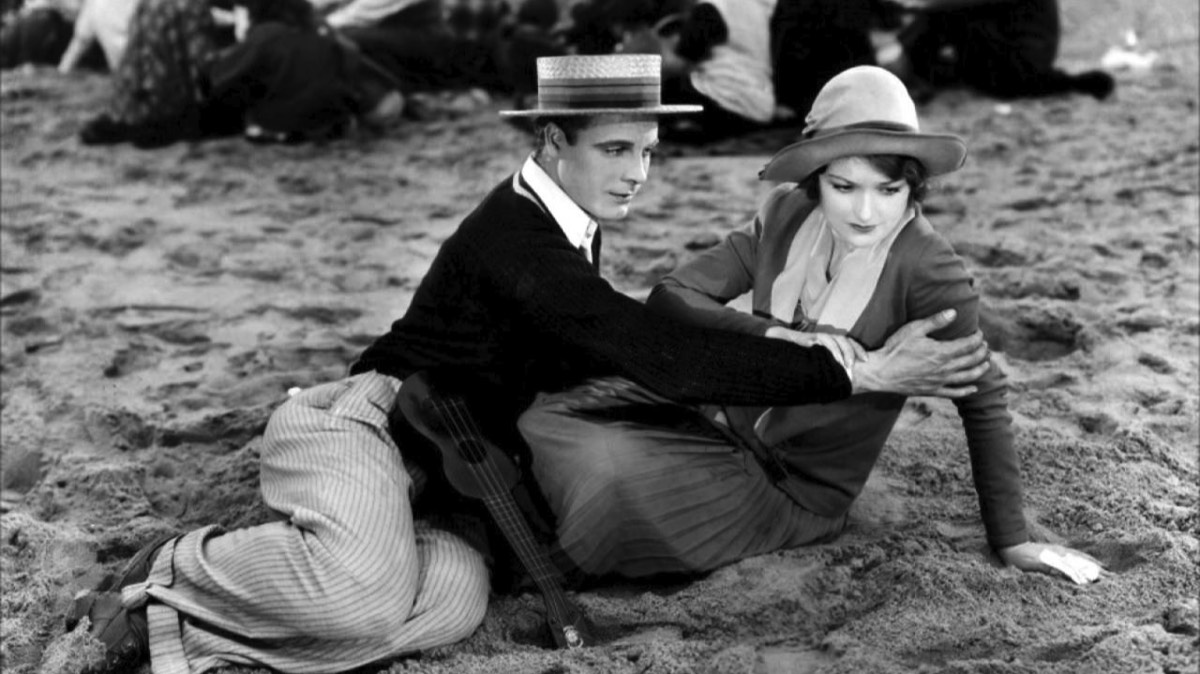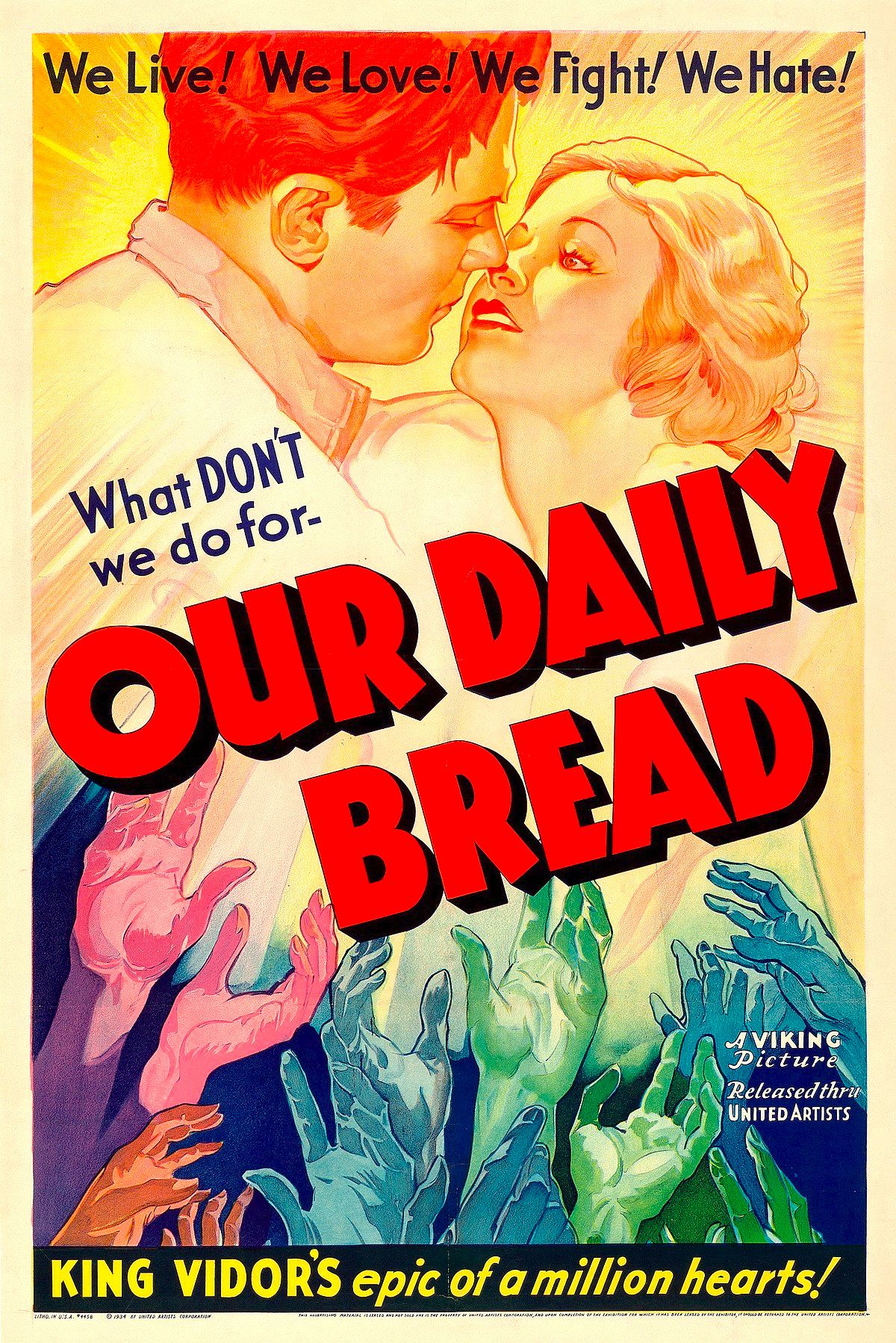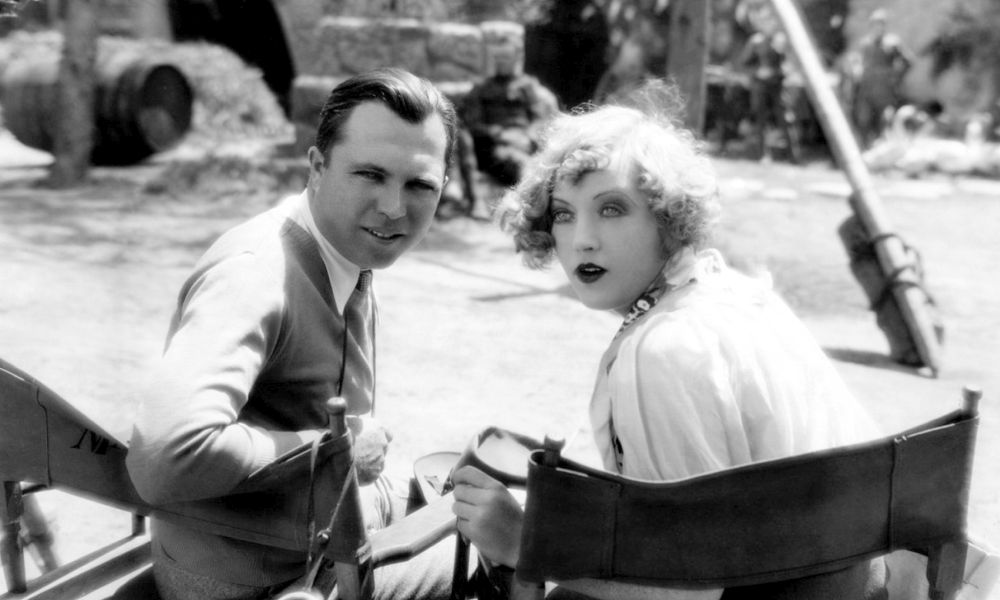"Although mention of his name doesn't ring the same bells that Ford, Hawks or Hitchcock does, his is nonetheless one of Hollywood's most distinguished careers, spanning nearly half a century and encompassing a formidable number of great films, genuine classics, and intensely personal projects that he managed to get made in the midst of the studio system." - Leonard Maltin's Movie Encyclopedia, 1995
King Vidor
Director / Producer / Screenwriter
(1894-1982) Born February 8, Galveston, Texas, USA
Top 250 Directors
(1894-1982) Born February 8, Galveston, Texas, USA
Top 250 Directors
Key Production Country: USA
Key Genres: Drama, Melodrama, Romance, Romantic Drama, Psychological Drama, Western, Rural Drama, War Drama, Adventure, Adventure Drama, Comedy, Traditional Western
Key Collaborators: Cedric Gibbons (Production Designer), Hugh Wynn (Editor), John Gilbert (Leading Character Actor), Max Steiner (Composer), Laurence Stallings (Screenwriter), Elizabeth Hill (Screenwriter), Samuel Goldwyn (Producer), Henry Blanke (Producer), Irving Thalberg (Producer), Renée Adorée (Leading Character Actress), Eleanor Boardman (Leading Character Actress), Alfred Newman (Composer)
Key Genres: Drama, Melodrama, Romance, Romantic Drama, Psychological Drama, Western, Rural Drama, War Drama, Adventure, Adventure Drama, Comedy, Traditional Western
Key Collaborators: Cedric Gibbons (Production Designer), Hugh Wynn (Editor), John Gilbert (Leading Character Actor), Max Steiner (Composer), Laurence Stallings (Screenwriter), Elizabeth Hill (Screenwriter), Samuel Goldwyn (Producer), Henry Blanke (Producer), Irving Thalberg (Producer), Renée Adorée (Leading Character Actress), Eleanor Boardman (Leading Character Actress), Alfred Newman (Composer)
"No other American director of his time is more engaging or less easy to pin down. Vidor could be radical and conservative (Our Daily Bread and The Fountainhead). He could handle so many genres while retaining such a vibrant sense of the oddity of people. For example, in the very melodramatic setup of Duel in the Sun, notice how the characters grow in complexity as the film advances. Moreover, Vidor could be shocking - there's a kind of spiritual violence in, say, Beyond the Forest, The Fountainhead, or Stella Dallas that is still engrossing. Was he optimist or pessimist?" - David Thomson (The New Biographical Dictionary of Film, 2002)
"King Vidor is a director for anthologies. He has created more great moments and fewer great films than any director of his rank. Vidor's is an unusually intuitive talent, less grounded than most in theory. The classics of his humanistic museum period - The Big Parade, The Crowd, Hallelujah - are no less uneven or more impressive than the classics of his delirious modern period - Duel in the Sun, The Fountainhead, Ruby Gentry." - Andrew Sarris (The American Cinema, 1968)

The Crowd (1928)
"Though Vidor was a versatile director whose finest films include sophisticated comedy (Show People) and poignant melodrama (Stella Dallas), his most typical work is notable for an emotional and visual boldness, later often bordering on bombast... Though Vidor's work was seldom subtle, the vigour and scale of his storytelling and imagery make for enjoyably forthright entertainment." - Geoff Andrew (The Director's Vision, 1999)
"Born in 1894, the Texan filmmaker had started making movies before he turned 20, growing up in parallel to his chosen medium. If he’s not spoken of in the same hallowed tones as many of his contemporaries, such as John Ford or Howard Hawks, there’s little mistaking Vidor as anything but an auteur. He may have considered himself a conservative – especially as he got older – but his films served to interrogate the political and philosophical systems they superficially championed. If the men in Vidor’s cinema largely succeed in their pursuit of the American dream, it’s his women that finally emerge as the most fascinating figures, even if they’re rarely victorious against the stacked decks of life and its systems." - Matthew Thrift (BFI, 2018)
"Informing most of his lasting work is the struggle of Man against Destiny and Nature. In his great silent pictures, The Big Parade and The Crowd, the hero wanders through an anonymous and malevolent environment, war-torn Europe and the American City, respectively... Vidor exercised more control on his films after Our Daily Bread (1934), often serving as producer, but his projects continued to fluctuate between intense metaphysical drama and light-weight comedy and romance." - Michael Selig (International Dictionary of Films and Filmmakers, 1991)
"Committed to the most unyielding and almost brutally positive American determination, King Vidor was a man of considerable artistic ambition who came of age in a period when movies were a new medium and wide-open for individual points of view. He made films glorifying the effects of Western civilisation and its contents, detailing how ordinary men are made extraordinary through their fight against the neutral destructiveness of nature. His men were winners who loved to work (with one key exception), and their will power became practically monolithic as Vidor’s career advanced." - Dan Callahan (Senses of Cinema, 2007)
"A great populist of the American cinema, Vidor never let theme or story obscure the needs of his characters. Sometimes this resulted in lumbering productions, but more often his work radiated a real, warm, humorous tone." - William R. Meyer (The Film Buff's Catalog, 1978)
"King Vidor's films range across all genres, but they are unified by a concern with the struggle for selfhood in a pluralistic, mass society. Influenced both by D.W. Griffith's realism and Sergei Eisenstein's montage aesthetic, Vidor has come closer to reconciling these strains than any other American director... Vidor's darkly humanistic vision, accompanied (especially in the 1925-35 period) by a striking and eclectic visual style, made him one of the most influential directors of his time. His oeuvre is as rich, diverse and intelligent as any in the history of cinema." - Kevin Jack Hagopian (The Virgin International Encyclopedia of Film, 1992)
"The name of King Vidor is entered in the Guinness World Records as the film director with the longest career, spanning 67 years and over 50 films. His dominant personality, however, is stamped on many of them... His technical virtuosity is apparent in films as varied as Stella Dallas (1937), a melodrama with Barbara Stanwyck, the Western Duel in the Sun (1946), and the epic War and Peace (1956)." - Ronald Bergan (Film - Eyewitness Companions, 2006)
"The relative obscurity into which King Vidor's name has fallen is as inexplicable as it is undeserved. His career was as long and successful as Cecil B. DeMille's, he was as pioneering as D.W. Griffith, as innovative as Rouben Mamoulian, and like all three he had a sure sense of what went over big at the box office." - Matthew Coniam (501 Movie Directors, 2007)
"In my opinion, the motion picture is the greatest medium of expression ever invented. It embraces all the other arts. The films that have the greatest unity, the greatest overall strength, and give the most satisfaction to the viewer, have been those in which a guiding hand was imposed in every section of the film's many divisions. Story, casting, settings, photography, clothes, acting, should all bespeak one mind." - King Vidor
Selected Filmography
{{row.titlelong}}
GF Greatest Films ranking (★ Top 1000 ● Top 2500)
T TSPDT N 1,000 Noir Films
R Jonathan Rosenbaum S Martin Scorsese
T TSPDT N 1,000 Noir Films
R Jonathan Rosenbaum S Martin Scorsese
King Vidor / Favourite Films
The Best Years of Our Lives (1946) William Wyler, The Big Parade (1925) King Vidor, Brief Encounter (1945) David Lean, Citizen Kane (1941) Orson Welles, City Lights (1931) Charles Chaplin, Intolerance (1916) D.W. Griffith, The Last Laugh (1924) F.W. Murnau, The Red Shoes (1948) Michael Powell & Emeric Pressburger, Rome, Open City (1945) Roberto Rossellini, Sunrise (1927) F.W. Murnau.
Source: Cinematheque Belgique (1952)
The Best Years of Our Lives (1946) William Wyler, The Big Parade (1925) King Vidor, Brief Encounter (1945) David Lean, Citizen Kane (1941) Orson Welles, City Lights (1931) Charles Chaplin, Intolerance (1916) D.W. Griffith, The Last Laugh (1924) F.W. Murnau, The Red Shoes (1948) Michael Powell & Emeric Pressburger, Rome, Open City (1945) Roberto Rossellini, Sunrise (1927) F.W. Murnau.
Source: Cinematheque Belgique (1952)
King Vidor / Fan Club
Martin Scorsese, José Luis Guarner, David Sterritt, Farran Smith Nehme, Pedro Butcher, Quim Casas, Richard Brody, Edgardo Cozarinsky, Tag Gallagher, Bertrand Tavernier, Slavoj Zizek, Raymond Durgnat.
Martin Scorsese, José Luis Guarner, David Sterritt, Farran Smith Nehme, Pedro Butcher, Quim Casas, Richard Brody, Edgardo Cozarinsky, Tag Gallagher, Bertrand Tavernier, Slavoj Zizek, Raymond Durgnat.
"Fan Club"
These film critics/filmmakers have, on multiple occasions, selected this director’s work within film ballots/lists that they have submitted.
These film critics/filmmakers have, on multiple occasions, selected this director’s work within film ballots/lists that they have submitted.


